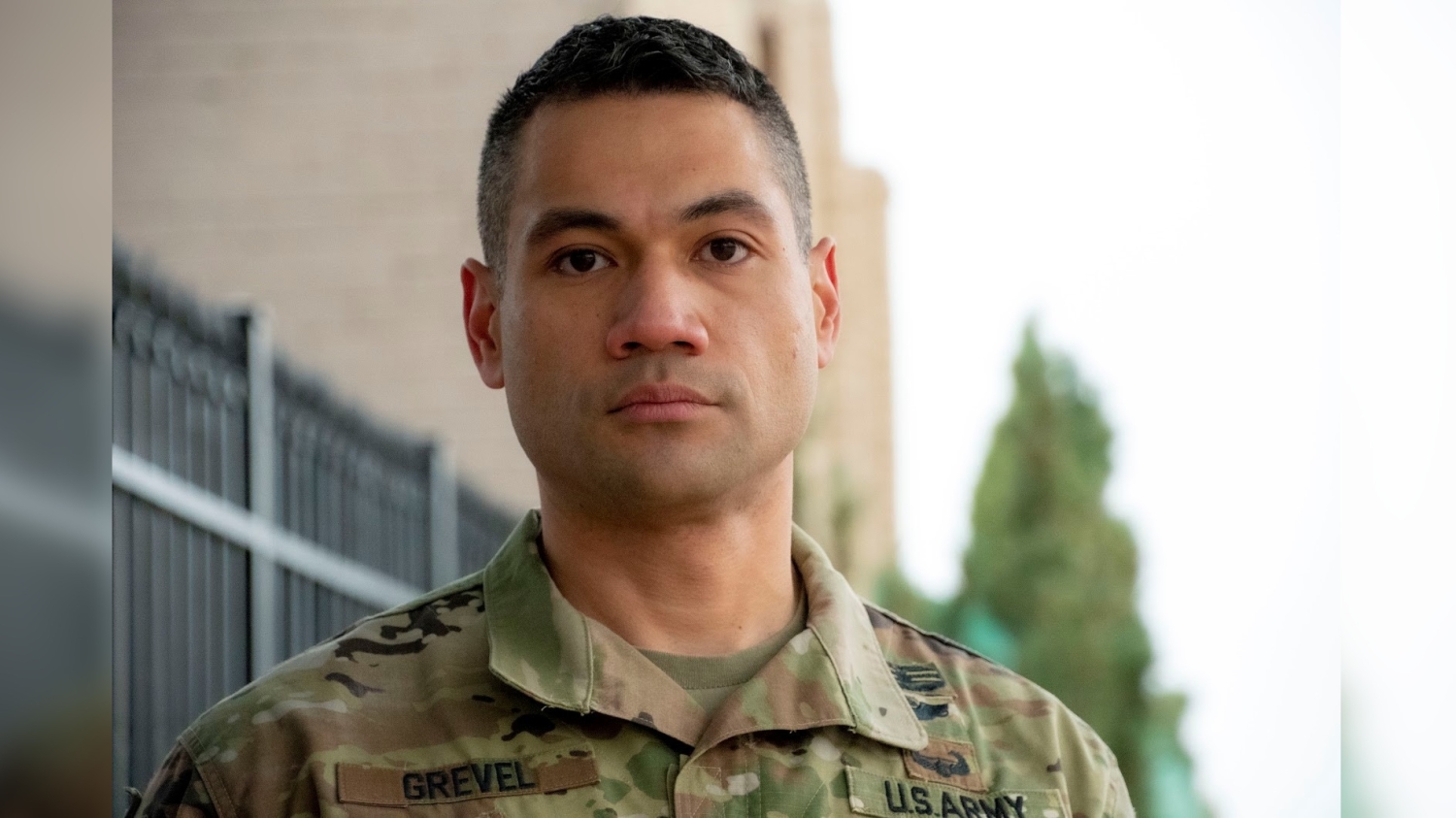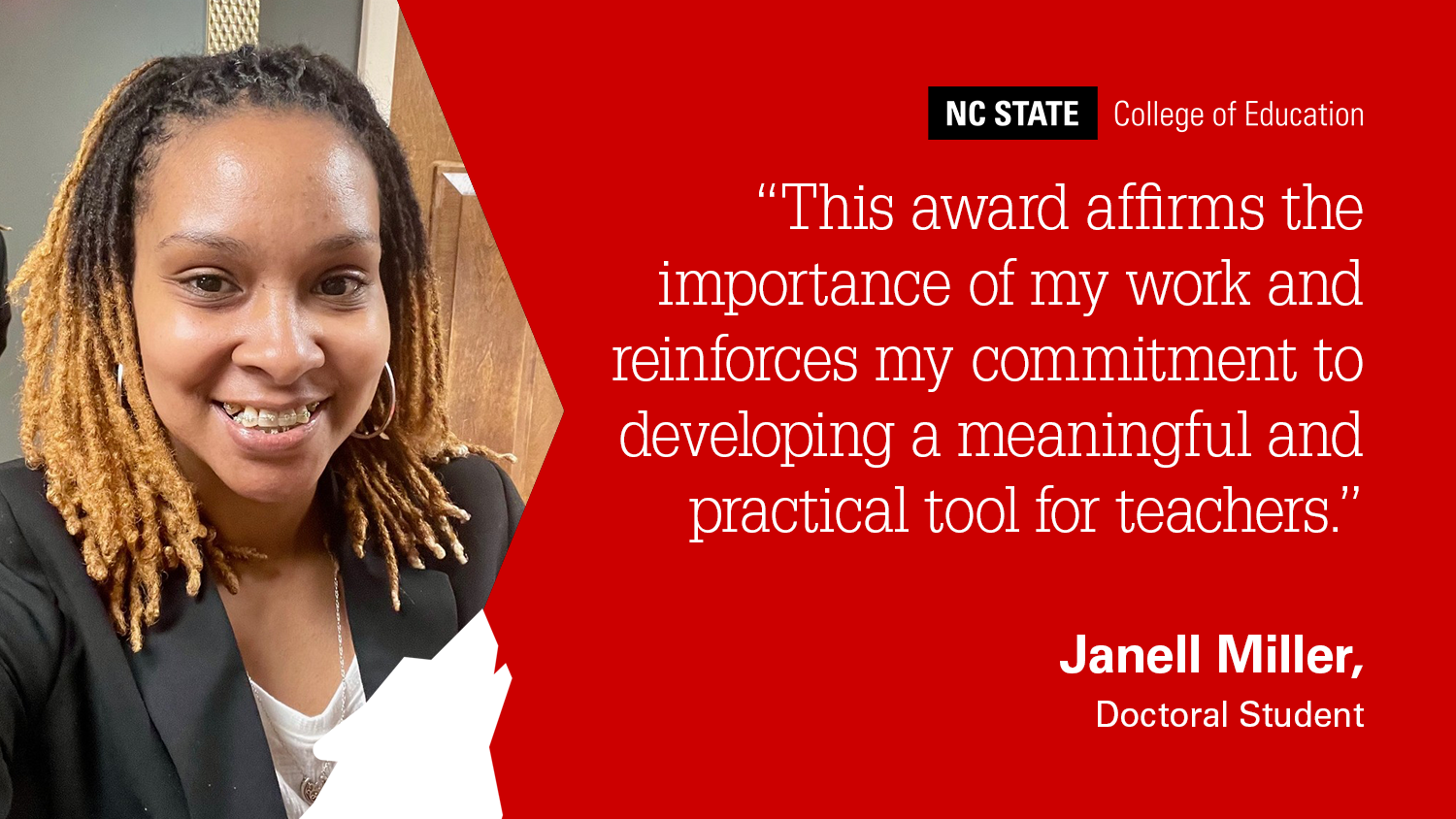Jenkins MBA student Marcus Grevel is a military automated logistics professional with over a decade’s worth of knowledge in emergency supply-chain planning requirements, including an adept understanding of Army supply chain and its complexities. He is currently pursuing his MBA at NC State while working as a full-time materials manager in the 108th Air Defense Artillery Brigade.
By employing courage and maintaining a headstrong demeanor, Grevel has assisted in strengthening the humanitarian supply chain, and he has done this by retaining a sense of humble servitude.
In an interview with NC State’s Supply Chain Resource Cooperative (SCRC), the active duty soldier reflected on his past, recalled the events that shaped him and offered guidance for those who, like himself, are simultaneously serving in the armed forces and pursuing academia.
For Grevel, his journey all started at a pet store.
A father’s advice
Before Grevel became a respected soldier, you could find him in the stock room of his local PetSmart. It was during this time that he discovered an interest for shipments and adding products to the shelf.
“I enjoyed working there. I stayed there a whole year while I was doing my undergrad. I always talked about [being a stocker] with my parents,” Grevel says. “I was drawn to anything that had to deal with receiving the trucks, and the hustle and bustle of seeing the shipments come in. I eventually gained an understanding of automated ordering.”
After hearing his son speak so passionately about stocking, Grevel’s father advised him to join the Army, where he could flex and develop his skills.
“He told me, ‘ I think you would like the equivalent of what you do for PetSmart in the Army.’ So I sat with the recruiter and picked the role of automated logistics specialist.”
Grevel maintained that role until this past spring, when he graduated from Warrant Officer Candidate School as a Warrant Officer One (WO1).
According to Grevel, the Army employs a similar system as PetSmart in terms of what is stocked within their warehouses. That is, the Army supply system analyzes demand from various Army units (i.e. its customers) and communicates with them to know what materials purchasers need.
“Each unit has unique material requirements to accomplish their missions. Customers range from air defense, water purification, automotive maintenance, food service, first aid clinics, infantry, engineers,” Grevel says. “They order their supplies on an automated SAP GUI system, similar to what a consumer would do on an online site. Our stock is determined by their demands and we maintain open communications with them to ensure they get what they need. We also analyze these demands to predict future needs in case of an emergency.”
A country in ruins
Back when he was new to the Army, Grevel was deployed to the Caribbean after the 2010 Haiti earthquake to perform humanitarian work, armed with not much more than what he learned at PetSmart.
The tragedy took the lives of an estimated 75,000 to 250,000 people in Haiti, the Western Hemisphere’s poorest country.
“When I first got off the plane,” he recalls, “everyone’s main concern was making sure they had a signal on their phone, not even realizing all the children in front of us that can’t even find their parents.”
Grevel recalls the fetid air caused by burning remains, decaying food and rubble from an infrastructure left in ruins. This is when he realized the inconsequential demand of his first-world problems and made aiding in the recovery his top priority.
“I thought, ‘As soon as I can send an email back to my family, I’ll let them know that I made it safe’—but our mission is to help get this country back on their feet,” he says. “We needed to get this country’s infrastructure back and running, get these people fed, get all the supply lines running, and get the port working, so that shipments of food can come in as soon as possible.
“Three months later we started to see shipments of food flowing in. And you want to talk about bottlenecks? There were a bunch of ships out there just waiting. It was a lot of work.”
Grevel says the experience gave him insight into the full spectrum of how the army operates.
“I joined the army, went out to Haiti and saw every other military occupational specialty working,” he says. “We had our military police going out and securing different areas so we could start building container yards, military truck drivers out there moving a bunch of equipment, military engineers — so many different specialties who were all doing their parts.”
Shaping the role of the soldier
According to Grevel, his experiences molded his leadership style and taught him the importance of patience. Further, they revealed to him that an individual must apply themselves to reach the destination they desire, and to do so requires perseverance.
“My leadership style is more of a servant leader,” Grevel says, “[which] is someone that understands, ‘Yes, I am in charge of someone, but it is also my responsibility to serve them the way they are supposed to serve me.’ If I expect you to do something, then you should have the same expectation of me, as far as my ability to take care of you as a soldier.”
Grevel believes all leaders should serve their superiors, but more importantly their subordinates. As soon as their soldiers see that their superior is taking care of them, they will return the favor, he says.
The value of education
Beyond his work in the Army, Grevel says that academia has given him a broader perspective of supply chain operations. However, he admits his focus at the moment is on a “micro scale” due to his duties on the frontline.
Nevertheless, when it comes to earning his master’s, he believes it is important to understand the larger picture of one’s goals and the long-term effects of the decisions we make today.
In addition to his humanitarian work, however, Grevel states that academia has given him a broader perspective of supply chain operations. He admits his focus at the moment is on a micro scale, because of his duties on the frontline. However, when it comes to earning his master’s, he believes it is important to understand the larger picture of one’s goals and the long-term effects of the decisions we make today.
When asked what advice he would give students who are serving, Grevel advises them to never stop—to keep going forward.
“If you are serving, time management is important,” Grevel says, “because you know you’re going to have these mission requirements. But you also need to understand that getting that degree is also a completion.”
While it’s not required to have a graduate degree for his current career track, Grevel says that if someone wants to advance in both the private sector military, it is vital to obtain a civilian education, since it’s one of the first things employers look at.
The secret to success
According to Grevel, determination is the most important factor when it comes to achieving goals.
“If you apply the same grit that you’ve displayed in basic training—or that you’ve gone through on a mission in the field—you can absolutely succeed in school,” he says. “But you have to work. You are going to reap the benefits of that, whether it is getting a promotion or having a really good resume when you get out of the Army.”
As for what he wants to accomplish next, Grevel says he wants to reach Chief Warrant Officer Two (CW2) status. His long-term career goal is to become a Chief Warrant Officer Four (CW4).
In the future, Grevel says he would also love the opportunity to mentor other active-duty soldiers in their pursuit of a master’s degree at NC State. “In the Army, a lot of people stop after getting their undergrad. I intend to influence them to continue their education, discuss the value of an MBA, and the prestige of attaining their MBA from NC State.”
This post was originally published in Supply Chain Resource Cooperative.
- Categories:



